Defensive Sites of Dinétah, Black Friday in Chaco Canyon II & Images of Dinétah
Thanksgiving Weekend | Thursday – Sunday, November 25-28, 2021
It feels like I’ve already spent a lot of time in the Land of Enchantment this year with visits to El Malpais National Monument, Mount Taylor and Wheeler Peak– so this seemed like the perfect year to skip our annual Thanksgiving visit to Cedar Mesa and head back to northwestern New Mexico instead. We actually did the same thing five years ago, so this wouldn’t be our first time spending Thanksgiving in La Tierra Del Encanto. We had originally planned to head to New Mexico last year for Thanksgiving, but the COVID restrictions at the time made us change our plans, so we were really looking forward to finally getting back this year! We left home early on Thursday morning and drove over Red Mountain Pass through the San Juan Mountains to Bloomfield, where we would be spending a couple of nights while we explored Dinétah and Chaco Culture National Historical Park for the next couple of days.
Dinétah is the traditional homeland of the Navajo people. The region is full of Ancestral Puebloan and Navajo rock art and small Navajo ruins called pueblitos, which is Spanish for “little pueblos.” There is also evidence left by the Ute tribes and early Spanish explorers and settlers.
Defensive Sites of Dinétah
This long holiday weekend we planned to spend much of our time looking for and visiting Defensive Sites of Dinétah, which are little ruins that are also known as pueblitos. Here’s a little background information about these sites:
The small, aboveground masonry structures of northwestern New Mexico called “pueblitos” (Spanish for “little pueblos”) drew the attention of the first European visitors to this area centuries ago. The pueblitos were observed by Spanish travelers in the early to mid-1700s, who remarked that they were places of defense against the Utes and Comanches. The early 20th century residents of the Gobernador area used the term pueblitos in reference to these small stone structures. In the early 1900s, the noted archaeologist Alfred Kidder proposed that these structures might have been built by Puebloan refugees fleeing Spanish reprisals after the Spanish resettlement of New Mexico in 1692, although research since then has well established that most, if not all, of the pueblitos were constructed by the Navajo (Diné).
These “Pueblitos of Dinétah” (pueblitos in the homeland of the Diné) were constructed in the 17th and 18th centuries and used defensively as well as for shelters and cooking. They are often situated on large boulders or outcrops, allowing the residents to have maximum vantage points. Architectural elements include roofs, hooded fireplaces, hogan foundations as well as peep holes for doorway security.
The Citadel Pueblito
The Shaft House Pueblito was the largest and most interesting site we would see all weekend. We also happened to be there during sunset, so the warm light on the sandstone was looking good!
This pueblito is situated on a narrow ledge of a canyon. The site consists of 14 rooms on two levels. The two levels are connected by a two-story masonry tower from which the site derives its name.
Gould Pass Pueblito
Pork Chop Pass Pueblito
Hooded Fireplace Pueblito
Here’s a look inside at the hooded fireplace.
An interior doorway at the Tapacito Pueblito.
Split Rock Pueblito
Boulder Fortress Pueblito
Largo School Pueblito
Adolfo Canyon Pueblito
While out looking for pueblitos Diane spotted Delgadita Canyon Arch.
The view from underneath Delgadita Canyon Arch.
Dusk on Encinada Mesa
Black Friday in Chaco Canyon II
Although we spent most of the weekend exploring Dinétah, we did head down to Chaco Culture National Historical Park on Black Friday, just like we did five years ago. We spent all day in the park so I could finish hiking the one trail in the park that I had not been on before, and so that Diane could visit some of the ruins she had not been to before, too.
We left early and arrived at the park just after sunrise and right after the gates were opened.
We were the first ones in the park this morning, so we decided to stop at Pueblo Bonito before anyone else showed up.
It was cold out this morning as we wandered through the many different doorways at Pueblo Bonito.
After leaving Puebloe Bonito we drove over to the Casa Rinconada Trailhead so we could hike the South Mesa Loop Trail, which is the only trail in the main part of the park that I had not hiked before.
Diane squeezes through a little slot in the cliff as we climbed up onto South Mesa.
Cairn in the Light
Looking back over Chaco Canyon from the rim of South Mesa.
We explored the ruins of Tsin Kletsin on top of the mesa.
Tsin Kletsin Ruins
We followed the trail off the west side of the mesa and through South Gap on our way back into Chaco Canyon.
Although there was still no one at the Casa Rinconada Trailhead when we returned, we could see that there were plenty of cars parked at Pueblo Bonito on the other side of Chaco Wash. Next we drove an almost complete loop through the park so we could return to the Penacso Blanco Trailhead. Diane had never hiked out to Penacso Blanco before and it’s been over ten years since I had, so that’s where we headed as the park started to get busier.
We took the short detour to see the petroglyphs along the way.
After crossing Chaco Wash we saw the Supernova Pictograph at the base of West Mesa.
Bear Claws & Feathers
Then we climbed up on top of West Mesa to see the ruins of Penasco Blanco.
Nice stonework on these walls.
Penasco Blanco Walls
Ghoul Wall
We didn’t see anyone else on this trail, aside from passing one Park Ranger, until we returned to the Petroglyph Trail which is where we started running into other hikers for the first time today. It was getting closer to sunset by the time we returned to the trailhead, so we decided to head over to the Gallo Campground to see the ruins and rock art nearby.
Gallo Wash Ruin
Hole In The Rock
Last Light Sheep
Although the hiking in Chaco Canyon is not very difficult, I ended up hiking over 15 miles today and was still feeling pretty good afterwards. I was kind of using today as a test to see how I would do on longer hikes again after my issue in the Grand Canyon a couple of weeks ago, and I think I passed. We left the park shortly before sunset and headed back across the desert as the sun set behind us.
Images of Dinétah
While looking for pueblitos throughout the weekend we also came across a number of rock art sites along the way, including some really cool petroglyphs and pictographs. Below are some of the images we found.
A beautiful morning in the canyon, ready to find some rock art and ruins!
Big Star Panel
Diane spotted this large faint petroglyph. I would have missed it.
These little pictographs are very cool.
Hands
Canyon Compass
Junction Panel
This was another very cool, but hard-to-see panel.
Incised Pictoglyph
Enjoy and Protect
These colorful pictographs were probably my favorite finds of the weekend.
We also came upon this inscription from 1889.
Hand Tracks Panel
The Big Panel
Big Warrior Panel
I caught a little color in the sky over this cow pond on our last evening in the canyons. It was a good weekend and we both look forward to returning!
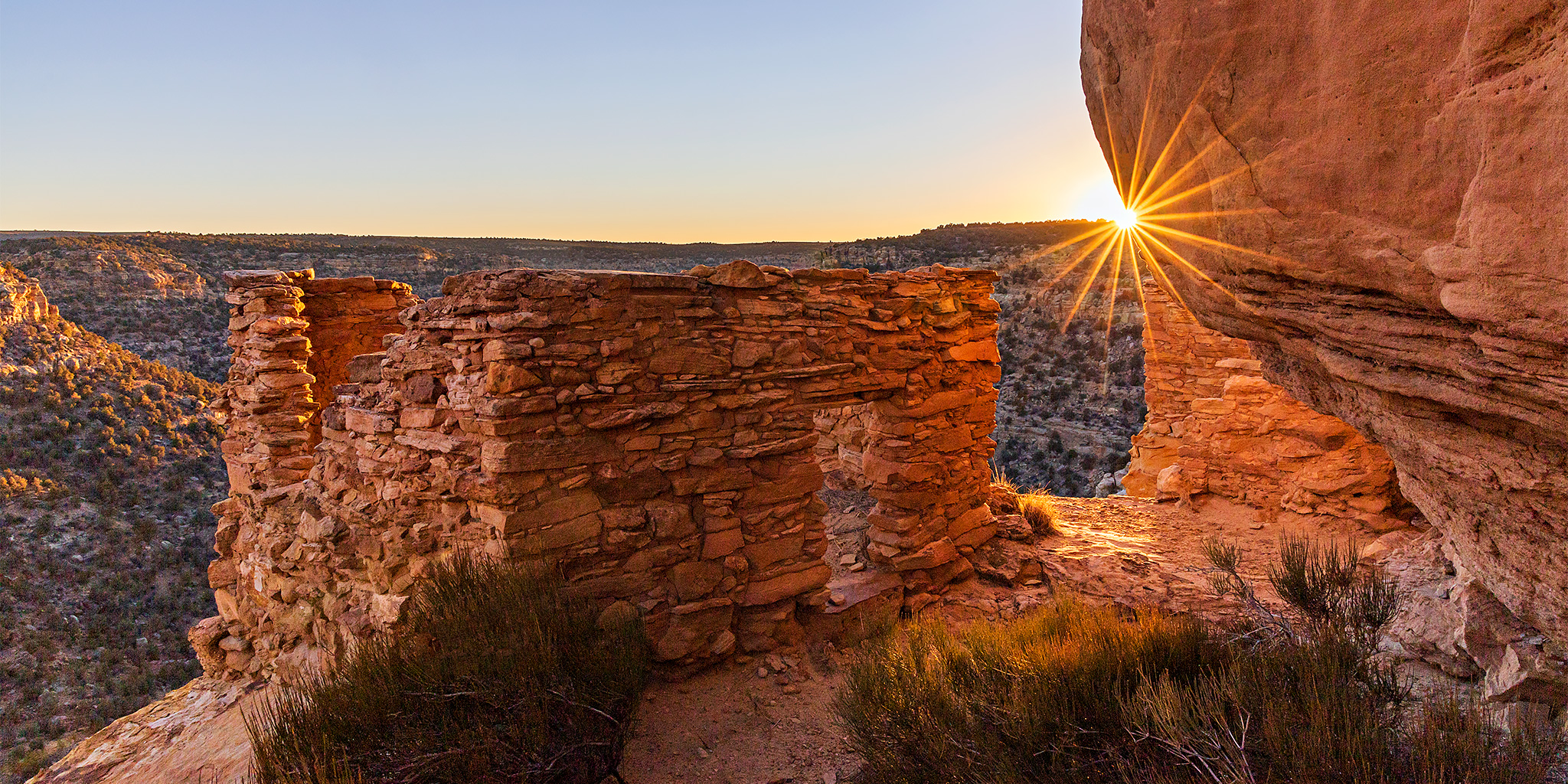

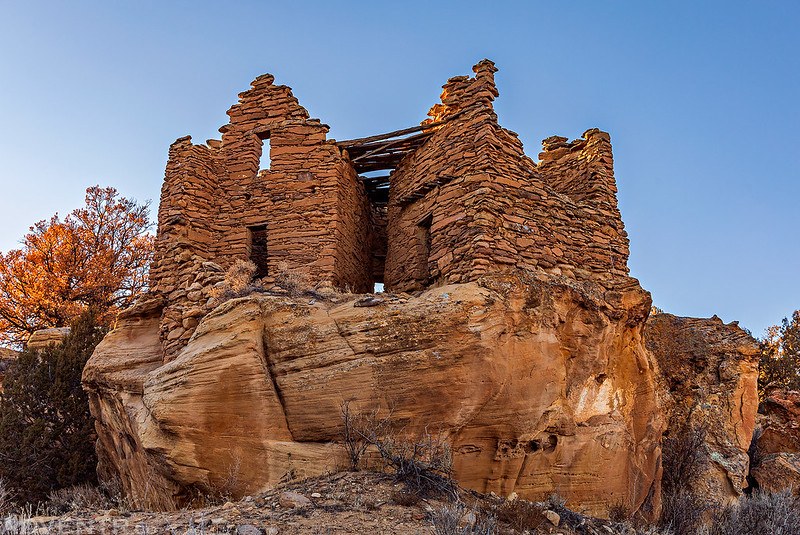


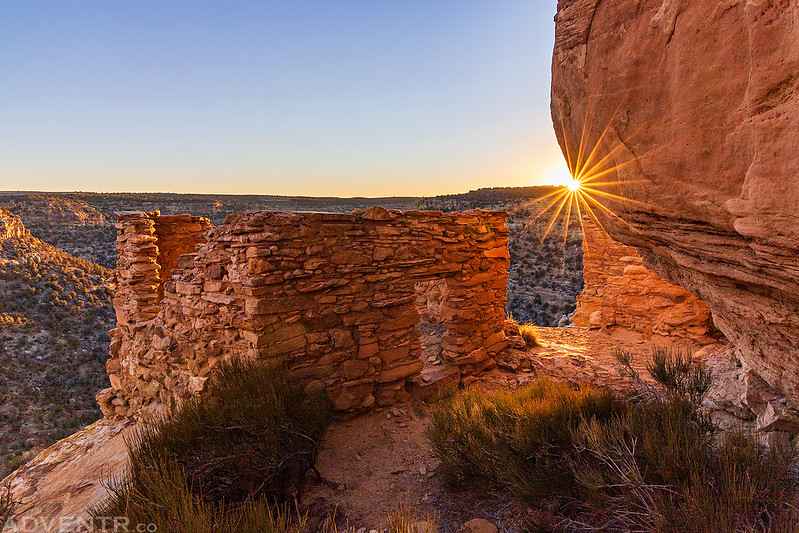
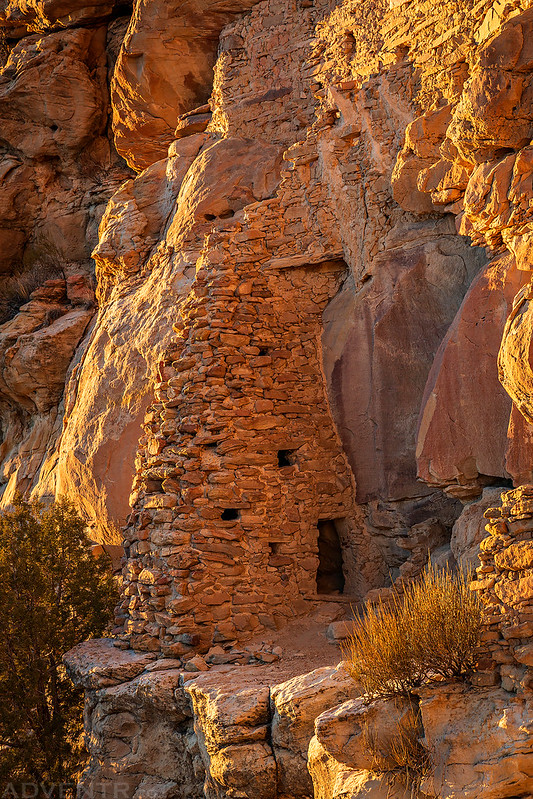
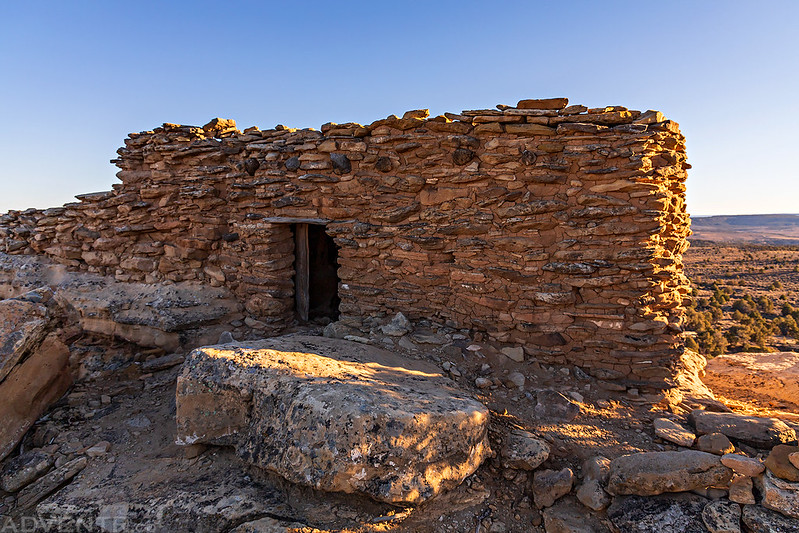
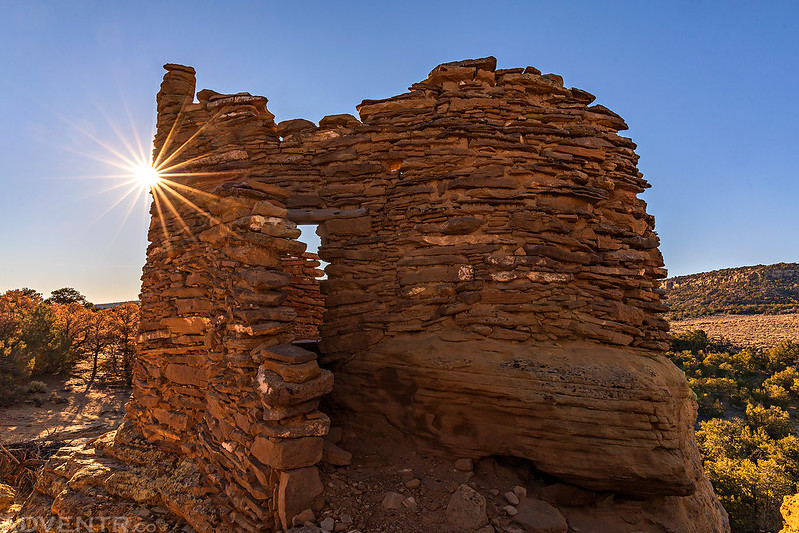

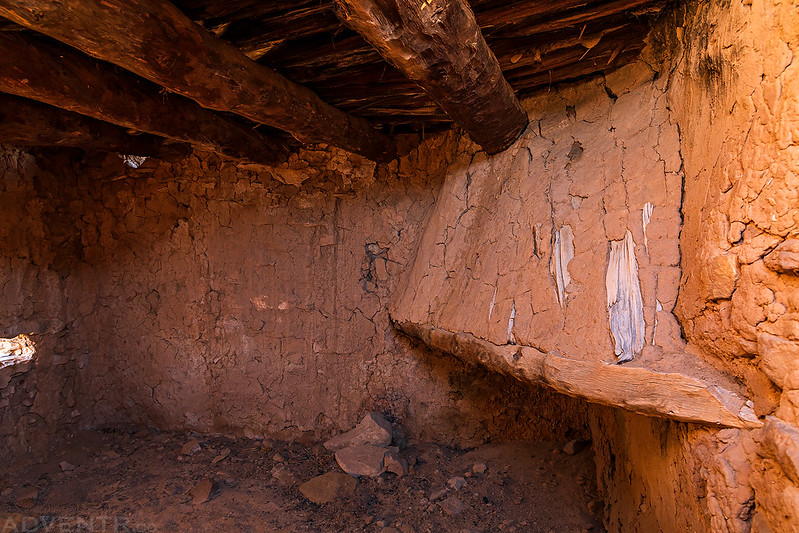


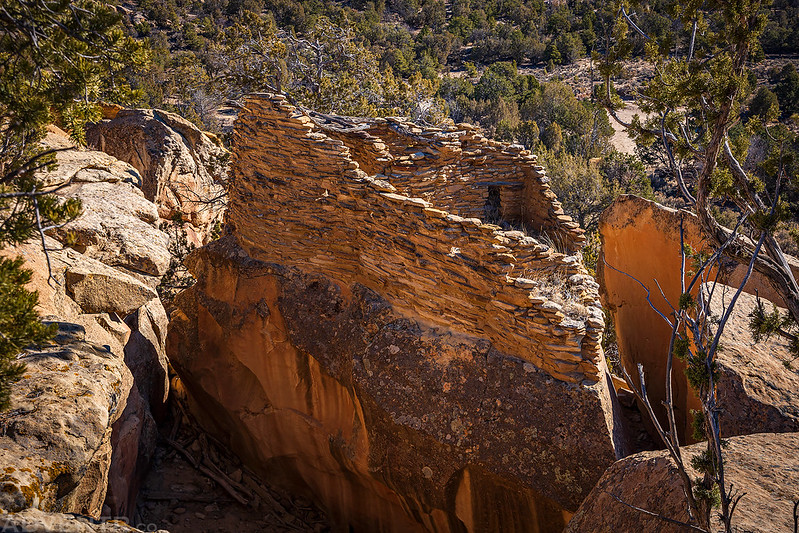


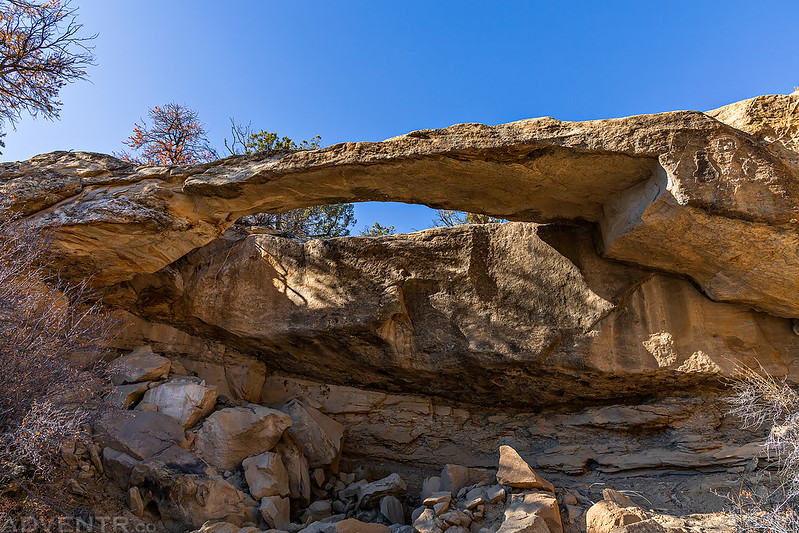


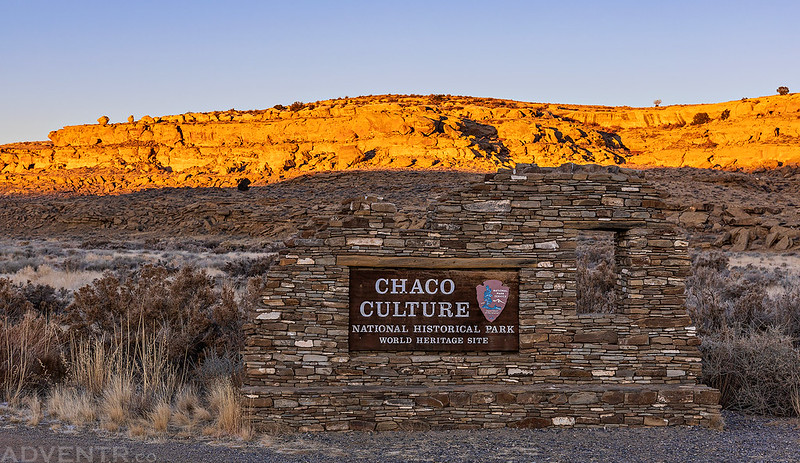



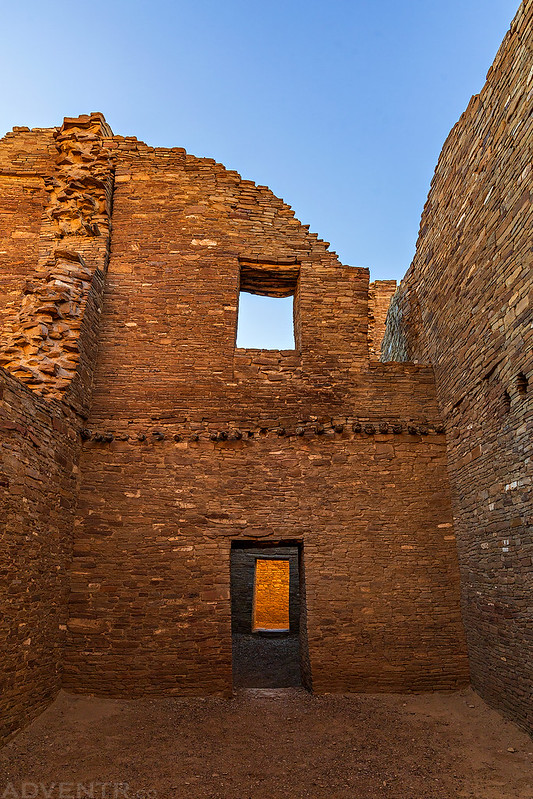
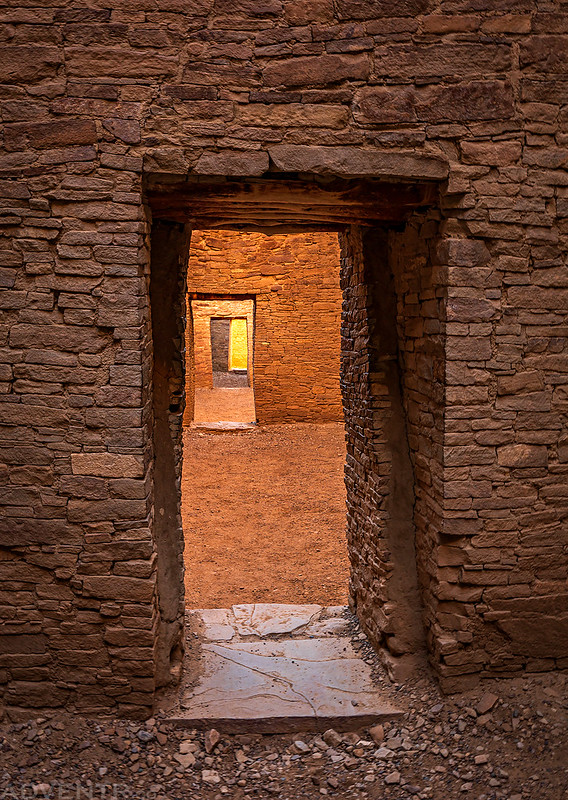

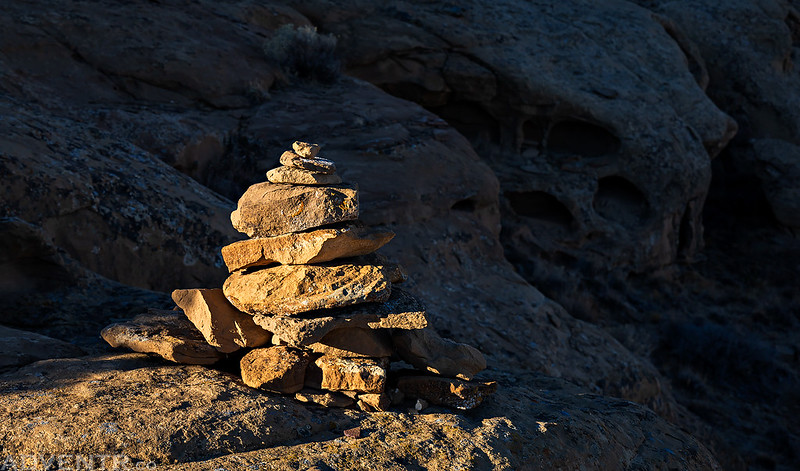
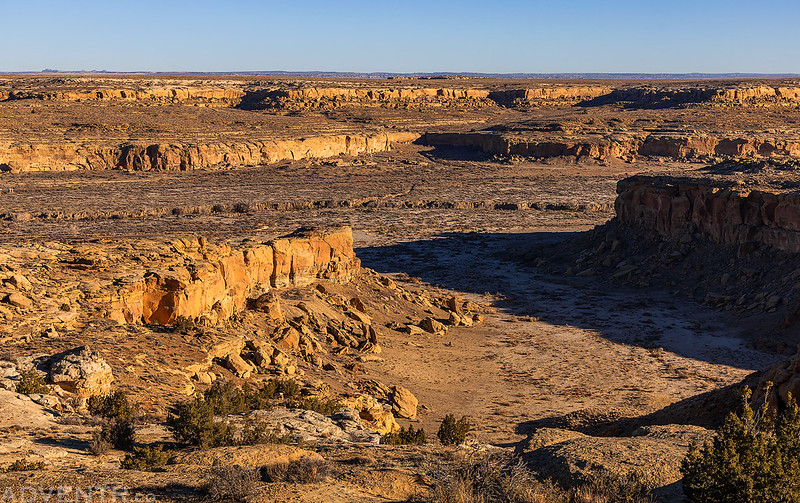


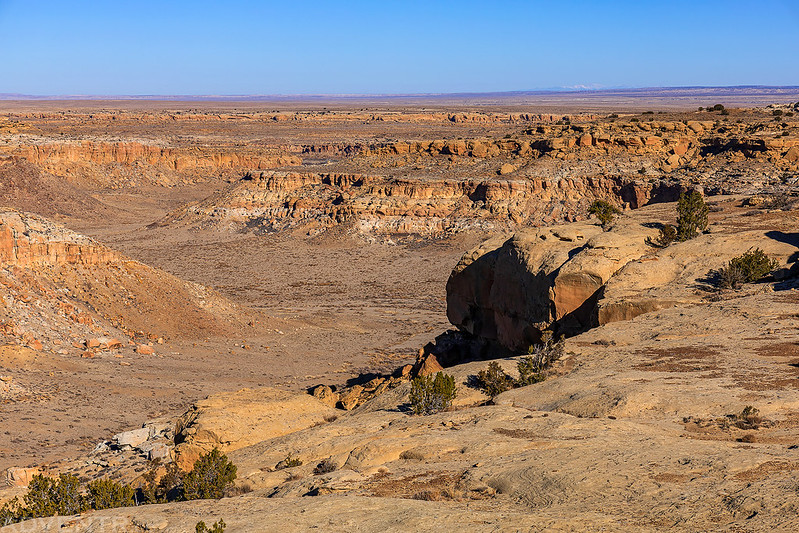


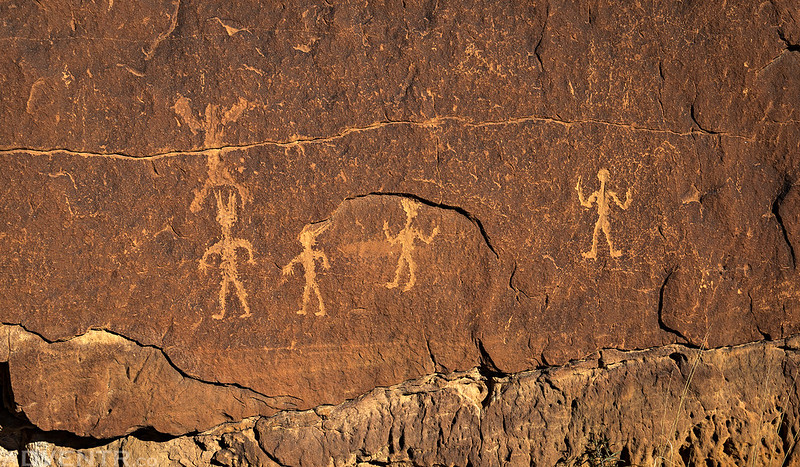
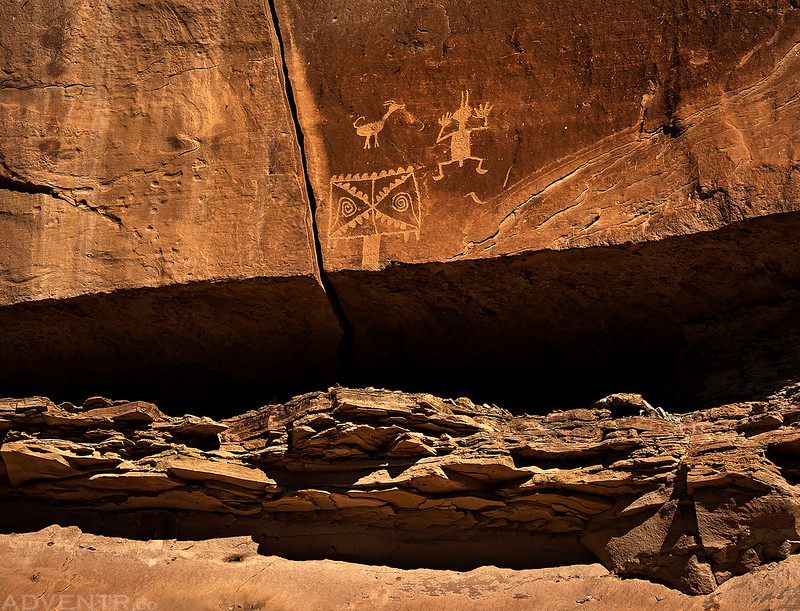
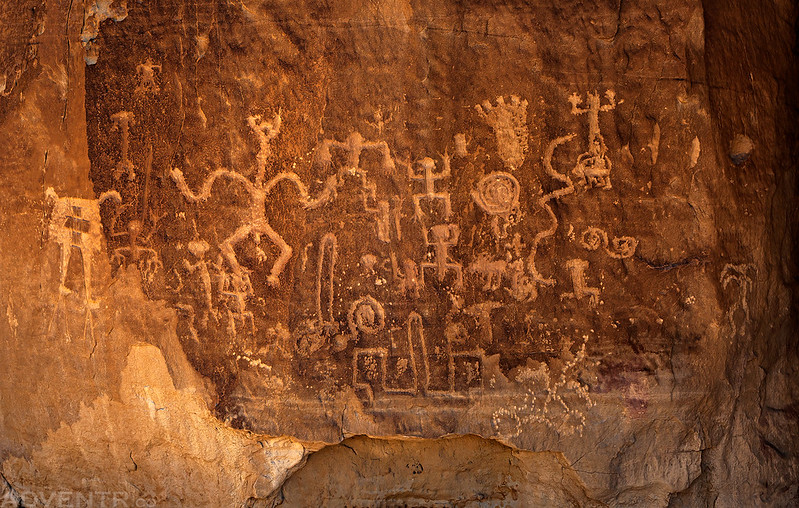

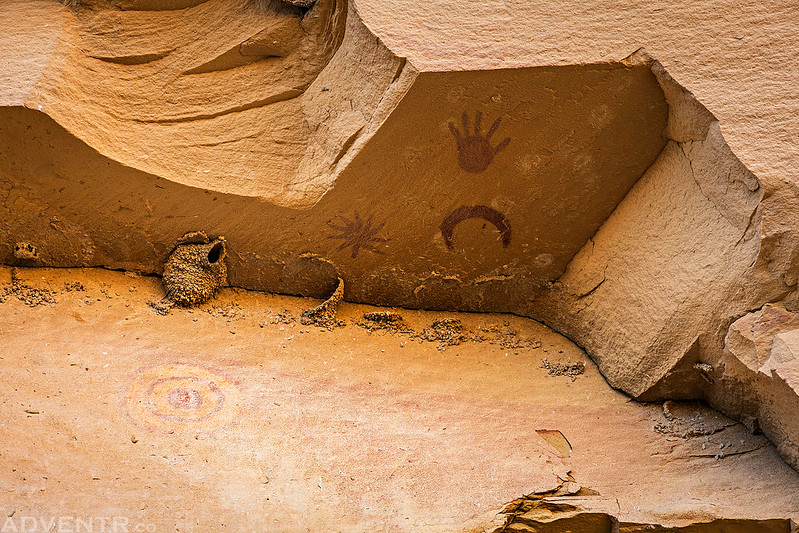

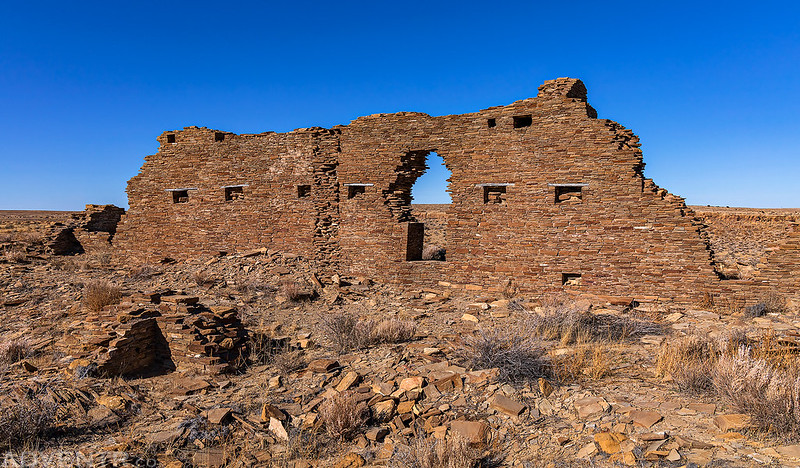
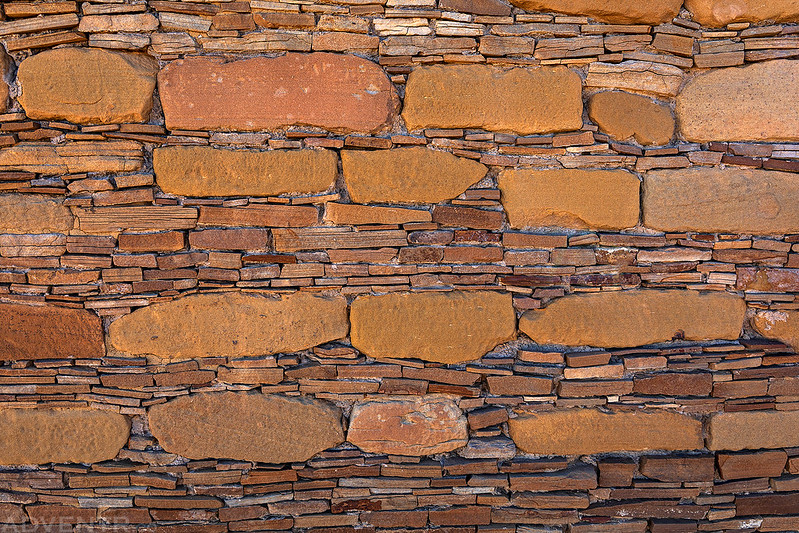


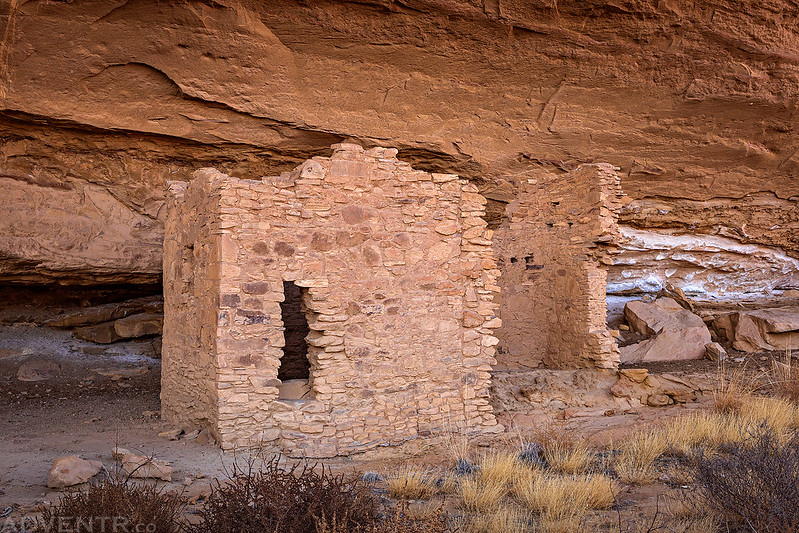
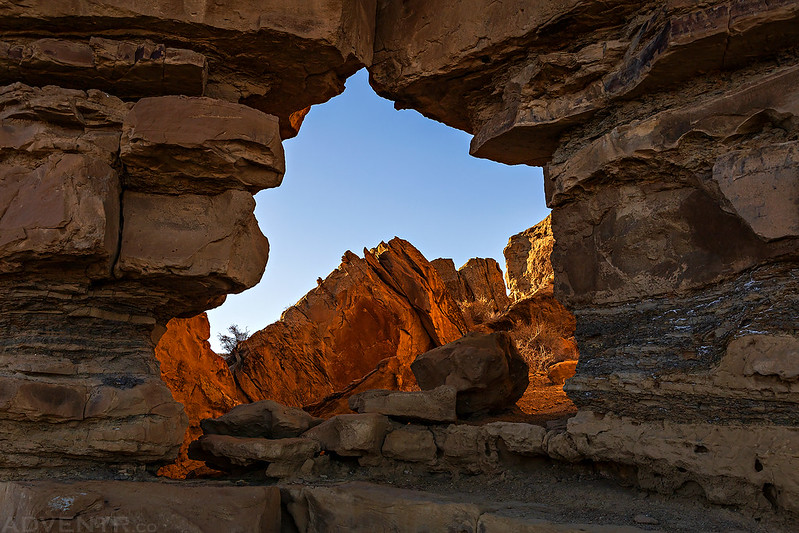

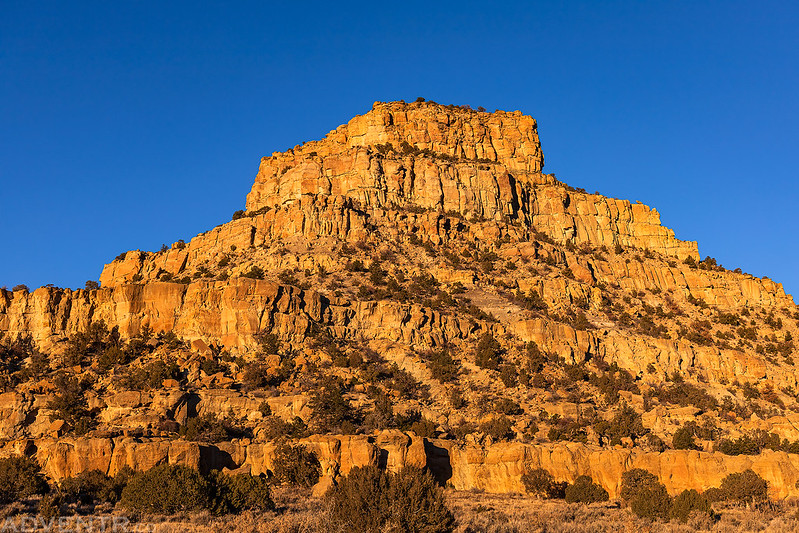
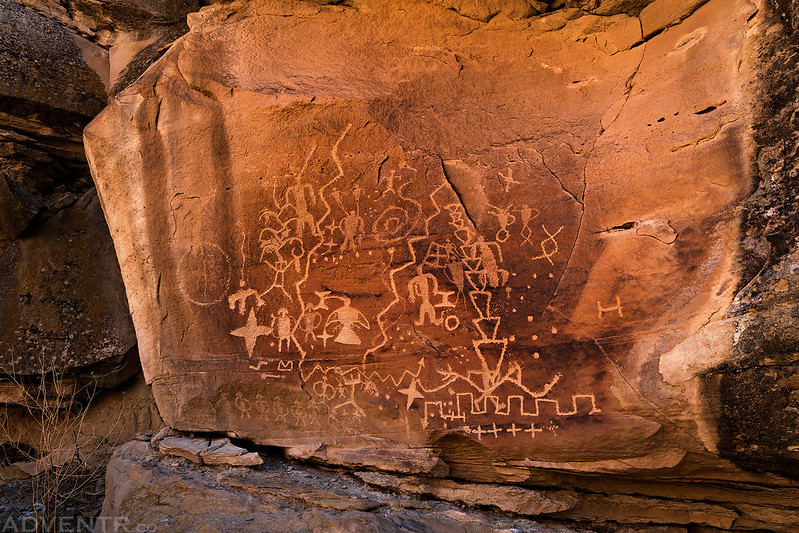


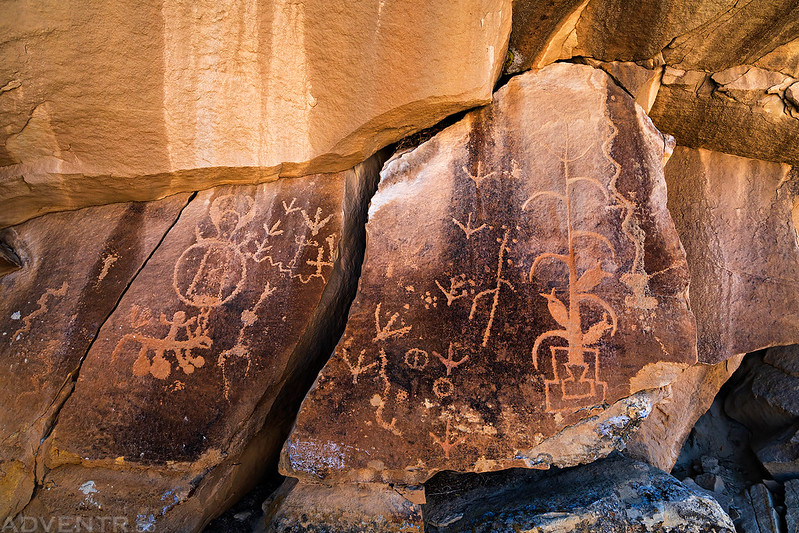

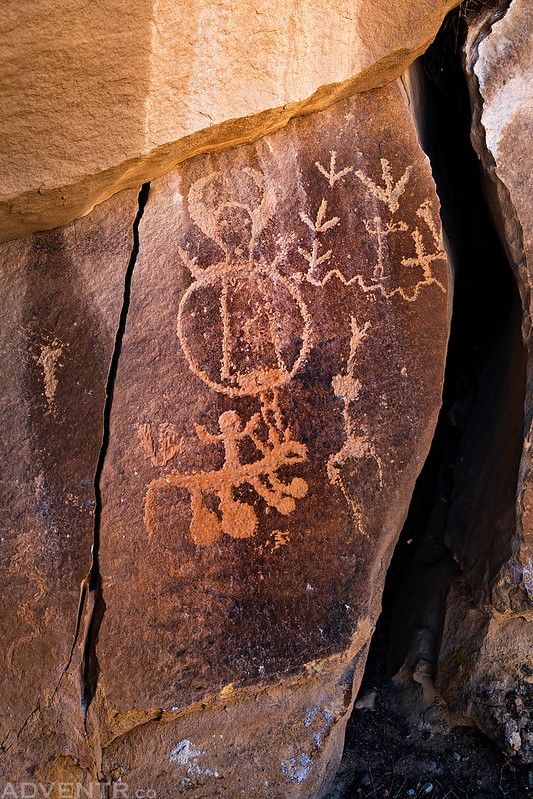

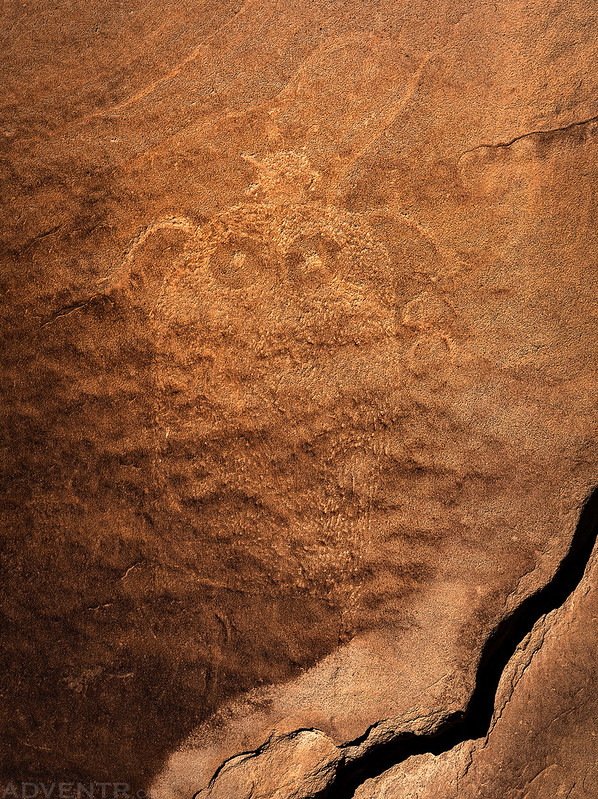
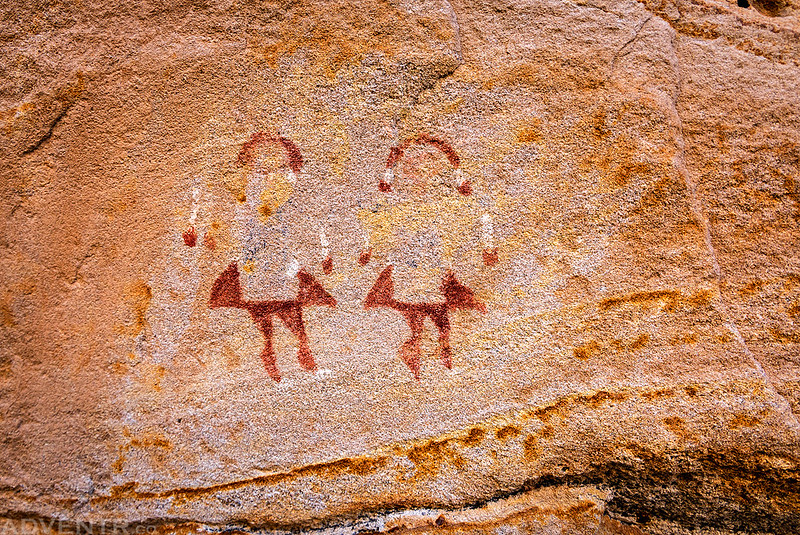

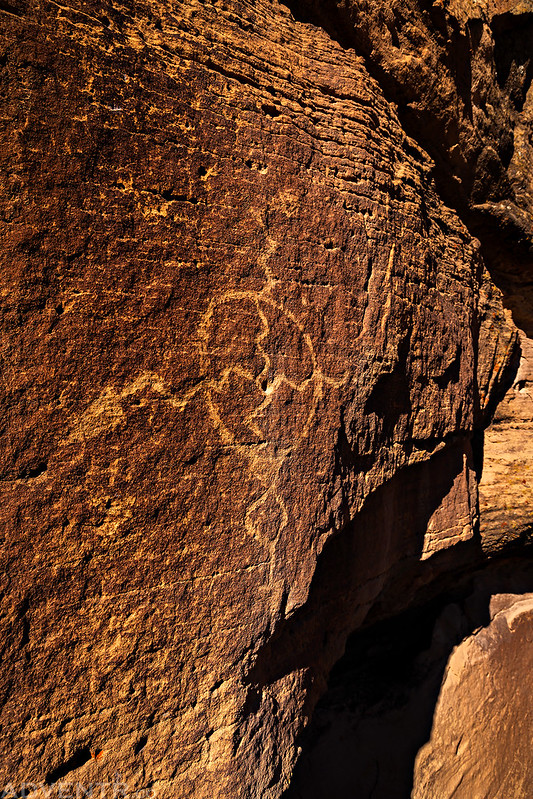

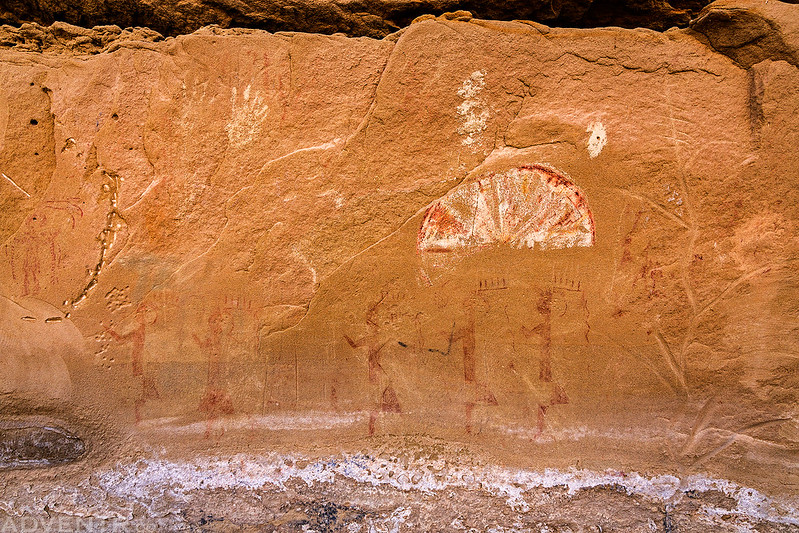
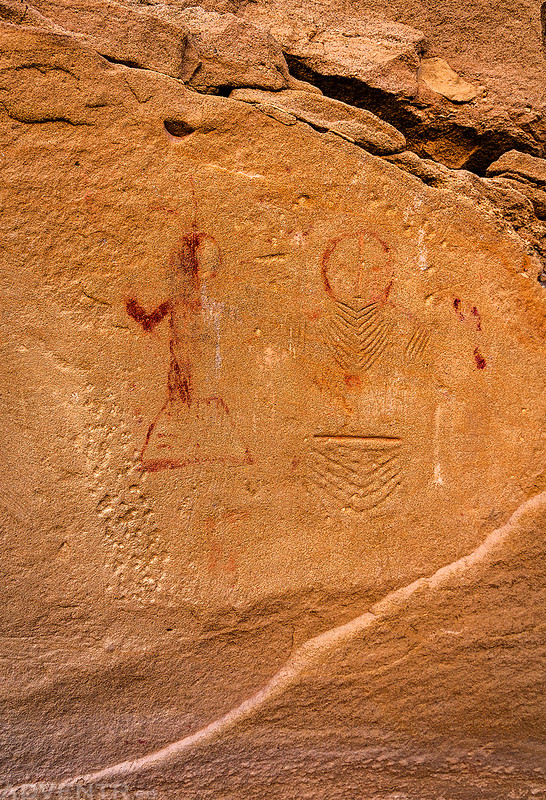
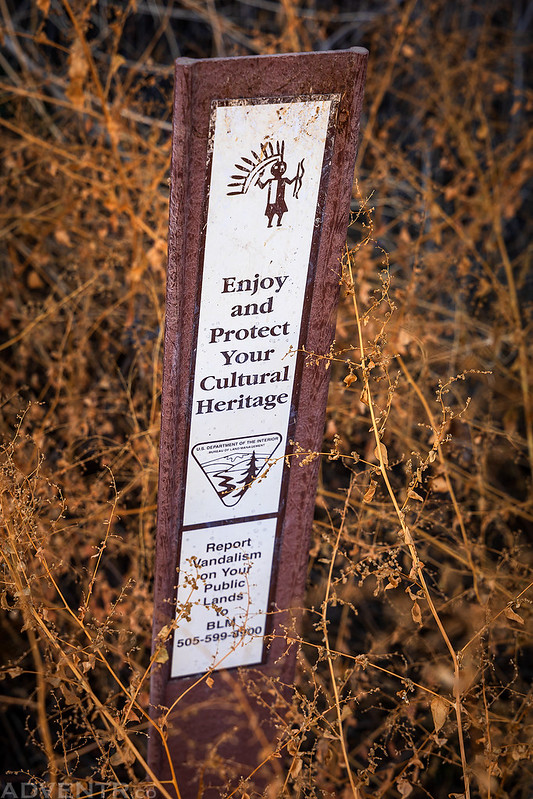

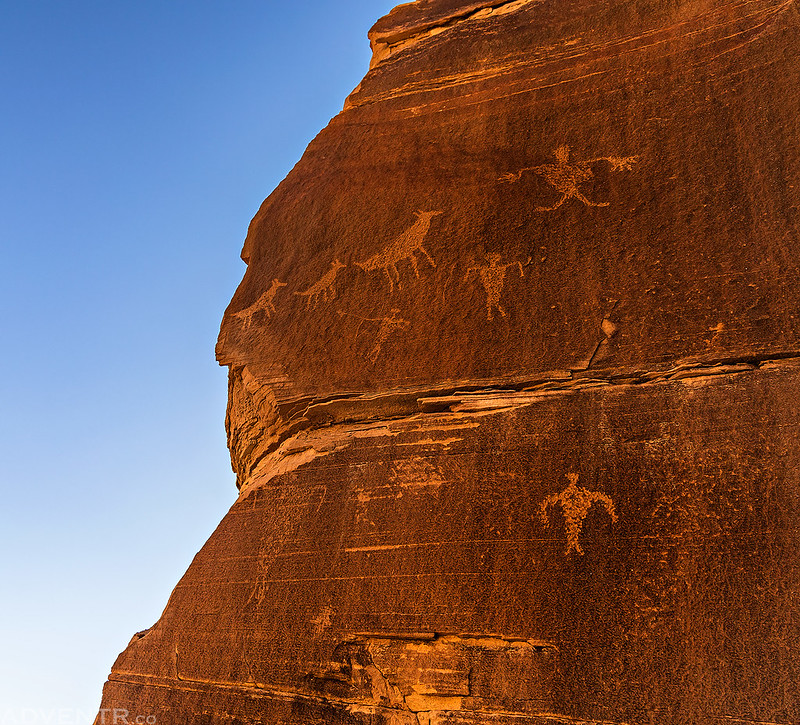
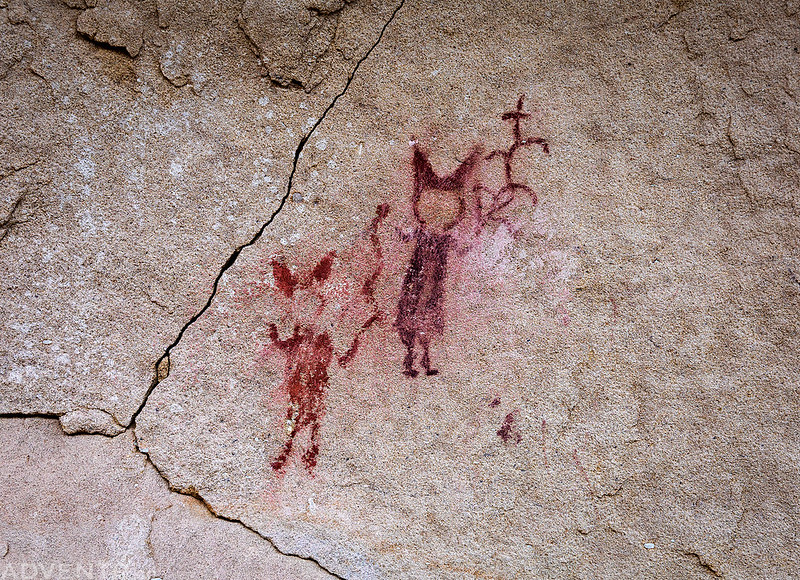
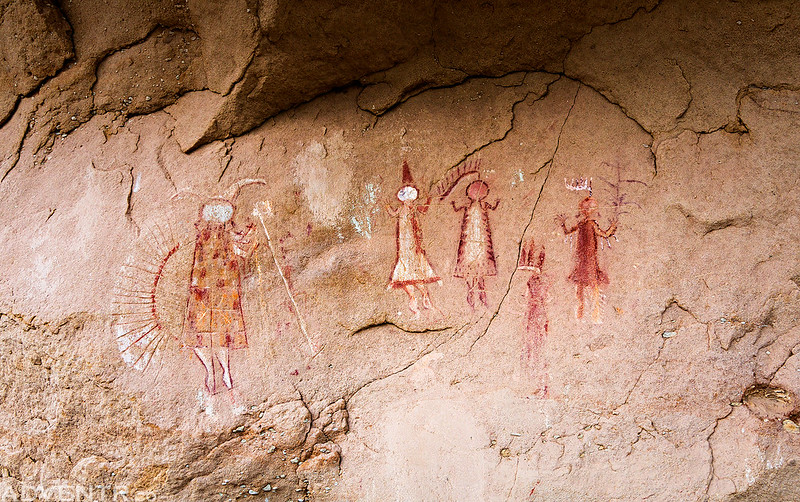


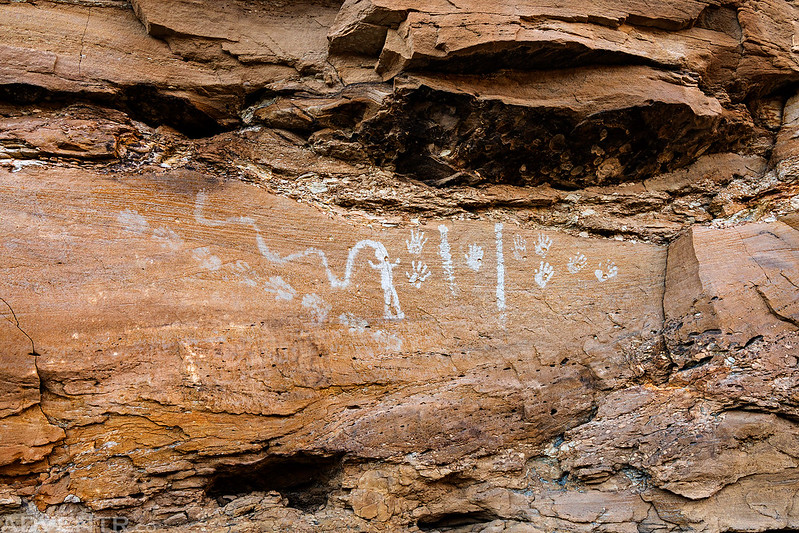
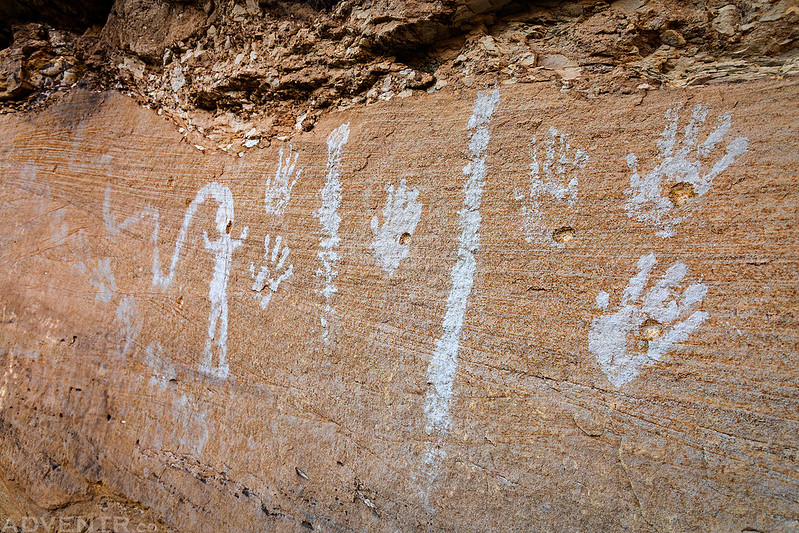




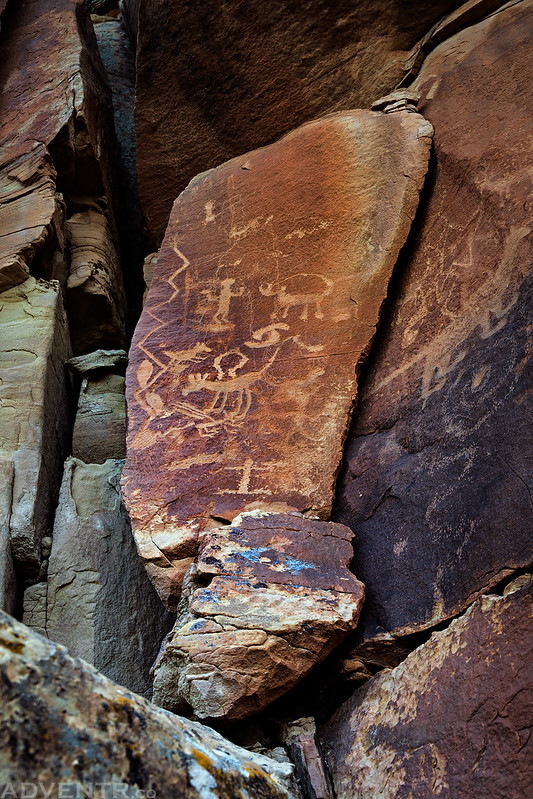


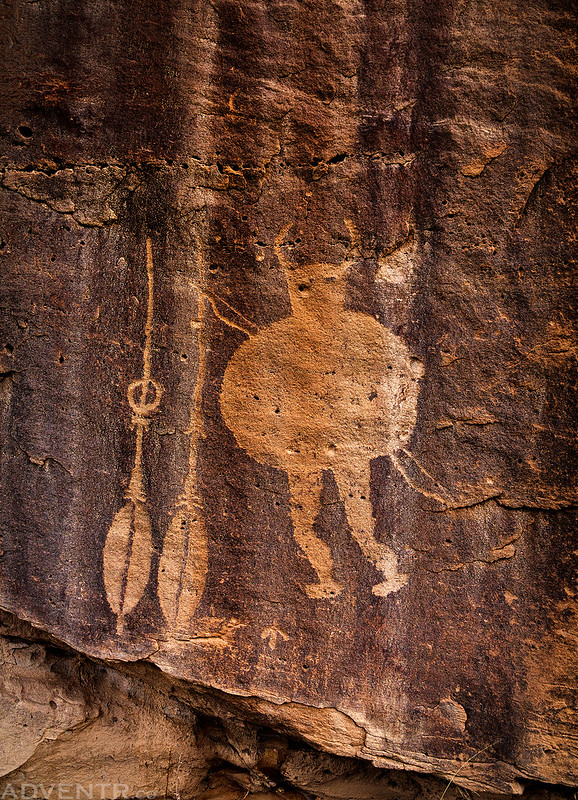




I really didn’t know about those sites in NM. Interesting. And of course your petroglyphs are spectacular.
Beautiful pictures! Fun to see pictures of areas near our home in Farmington, NM. Especially nice to see the Dinetah Pueblitos and Rock Art which I think are under-appreciated. I’m the guy in the green Toyota Tacoma with the pop-up camper and dog that was going up the east side of Bolam Pass while you were going down over the Fourth of July weekend this summer. I’ve enjoyed your pictures of places we like to enjoy in the Four Corners and it was fun to run into you in the Wild!
Thanks Stan! I remember running into you on Bolam Pass over the summer!